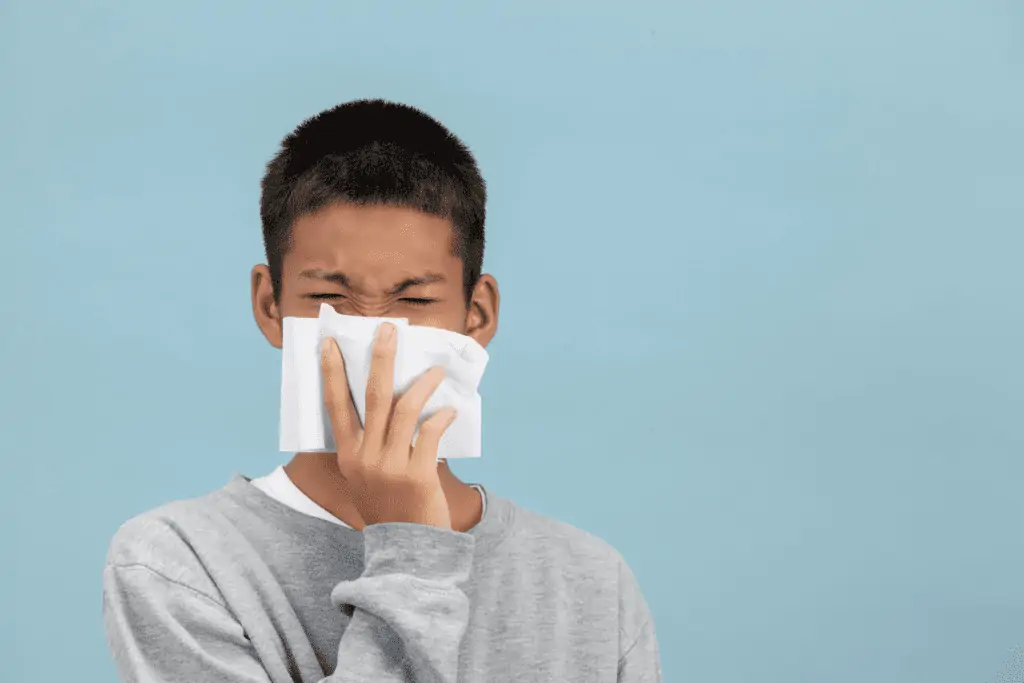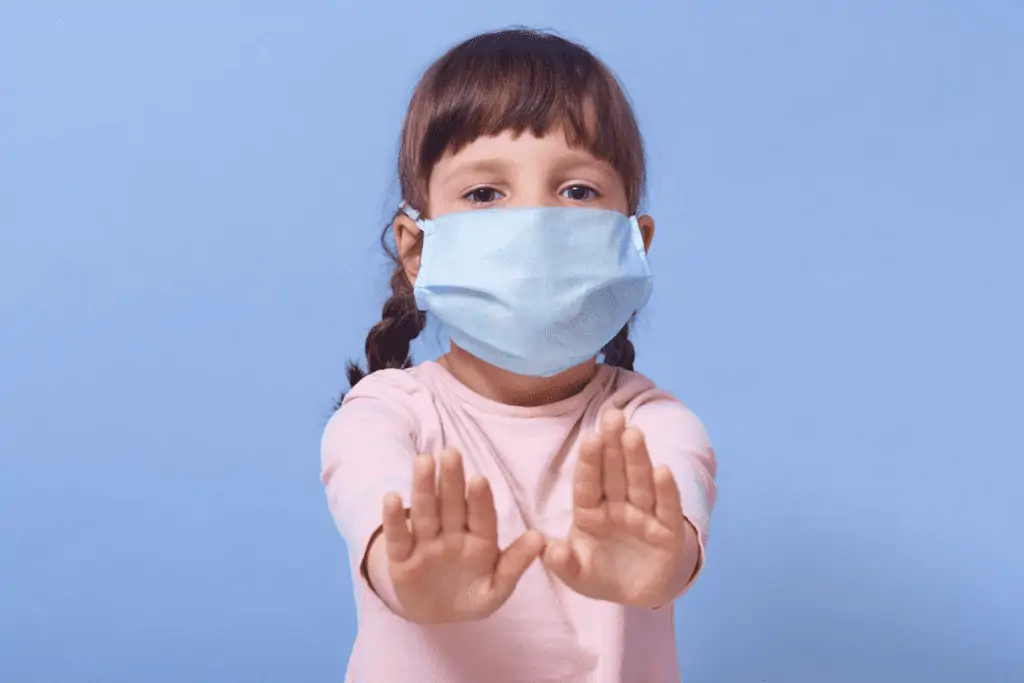
Maybe you’re just wondering if you should be worried about it. Maybe you’ve had a weird symptom for a few days and are starting to wonder if it’s something serious. Or maybe you’ve gone through the whole gamut of tests and treatments, only to find that your symptoms aren’t getting any better. Whatever your situation, we’re here to tell you: yes, it is possible that you have a viral infection. And if that’s the case, there are things you can do about it!
What Is A Viral Infection?
A viral infection is a condition that is caused by viruses. A virus is a small infectious agent that replicates inside living cells. Viruses are not technically alive. They don’t grow or reproduce on their own. But they can infect organisms like humans and animals, where they replicate and cause disease.
Viruses are not cells. They are loose bits of genetic material enclosed in protein coatings. When viruses enter a host cell, they inject their genetic material into the host’s DNA. Then, they use the host’s cellular machinery to produce more viruses. The life cycle of a virus depends on the type of virus and the species it infects. For example, some viruses will remain dormant until conditions are right for them to replicate.
Moreover, viruses can be transmitted in many ways, including through blood, saliva, nasal secretions, and feces. You can also get them from touching the skin of someone infected. Some viruses can be spread from one person to another by coughing or sneezing.
What are the most common types of viral infections?
When you’re dealing with a viral infection, it can be hard to tell what’s going on. So, here’s a list of the most common types of viral infections to look out for:
Influenza (flu)
The flu is a viral infection that affects the respiratory system. It can cause high fever, aches and pains, and sometimes nausea and vomiting. Most people who get it recover in one or two weeks, but some people do not recover so quickly.
The flu can be serious for those who are already ill or weak because of age or other factors. People with chronic diseases like cancer or heart disease may be at greater risk of complications from the flu.
Rhinovirus (common cold)
The common cold is a viral infection of the upper respiratory tract, including the nose and throat. It can cause sneezing, runny nose, sore throat, and cough. The symptoms usually start within a few days of exposure to the virus.
The virus spreads through direct contact with an infected person or through airborne droplets from their sneezes or coughs. Colds are most common in winter months because people spend more time indoors where air circulation is poor, and they are close together in small rooms or spaces.
Hepatitis A, B, and C
Hepatitis A, B, and C are all viruses that can lead to a chronic infection in the liver. They’re spread through contact with an infected person’s blood or other bodily fluids.
Hepatitis A is usually caused by eating food or drinking water contaminated with fecal matter that has the virus in it. It also can be transmitted through close contact with an infected person.
Hepatitis B and C are transmitted through exposure to infected blood or bodily fluids. Birth mothers can pass these infections on to their babies during delivery.
Measles
Measles is one of the most common viral infections in the world. It is a highly contagious airborne disease that can cause serious complications like pneumonia or encephalitis. The virus spreads through direct contact with an infected person or by inhaling droplets from sneezing or coughing.
Mumps
Mumps is caused by the mumps virus, which is carried in the saliva of infected people. The disease spreads when an infected person coughs or sneezes or when saliva comes into contact with objects, food, or drinks.
Mumps causes painful swelling of the cheeks, jaw, and neck. Other symptoms include fever, headache, and muscle aches. Most people recover completely from mumps within two weeks. However, there is a small risk of complications, including meningitis (infection of the fluid around the brain) and deafness.
Chickenpox (varicella)
Chickenpox is a common childhood illness that causes red, blistered skin. It’s usually mild and lasts about ten days. Chickenpox is caused by the varicella-zoster virus (VZV).
Chickenpox is a kind of infection that your body fights off on its own. You can also get it as an adult if you’ve never had it before, but this is rare. If you get chickenpox as an adult, it’s even more serious than when you get it as a child. You’re at greater risk for complications such as pneumonia and encephalitis.
Mononucleosis
Mononucleosis, also known as mono or the kissing disease, is a viral infection caused by the Epstein-Barr virus. It usually starts with a sore throat, followed by severe fatigue and fever that lasts for weeks. Mono can also cause swollen lymph nodes in the neck and armpits, muscle aches, headaches, and swollen tonsils. Symptoms vary from person to person — some people don’t experience any symptoms at all!
Mono is most common among teens and young adults. It’s usually transmitted through close contact with someone who has it: touching their hands or sharing drinks, or eating utensils with them. Mono can also be passed along through kissing or sex.
HIV
HIV is one of the most common types of viral infection. It is a virus that attacks and destroys your immune system. This makes it difficult for your body to fight off other infections. HIV is most commonly spread through sexual contact. However, it can also be transmitted through infected blood or from mother to child during pregnancy or birth.
There are many strains of HIV, but all are known as human immunodeficiency viruses (HIV). Some types of HIV have been isolated and identified, but there may be others that have not yet been discovered. These strains account for about 90% of all HIV infections worldwide.
Cold sores (herpes simplex virus)
Cold sores are caused by the herpes simplex virus. The virus is spread by direct contact with an infected person or by touching something contaminated with their saliva.
The cold sore usually appears on the lip. But it can also occur on the chin, cheek, or nose. It begins as a small red bump that eventually breaks open and oozes fluid. The skin around it may become inflamed and tender to touch. A crust forms at the end of this cycle, which then falls off and leaves a pale scar.
Shingles (herpes zoster virus)
Shingles happen most commonly in older adults and people with compromised immune systems. The herpes zoster virus is contagious and can spread from one person to another if they touch or share contaminated objects.
The symptoms of shingles include a rash that appears on one side of the face or body, pain in the affected area, headaches, fatigue, and fever. The rash usually lasts two to three weeks, but it may take months for all the symptoms to disappear completely.
COVID-19
COVID-19 is a new but widespread type of infection that can be spread by coughing and sneezing. The virus was first reported in 2019. It causes fever, cough, and muscle pain. It can also cause mild to severe symptoms in people with underlying conditions, such as asthma or diabetes.

What are the symptoms of a viral infection?
One of the most common questions people have when they’re feeling under the weather is: “Am I sick with a virus?” The answer is usually “yes,” but it can be hard to tell. So here’s a quick guide to help you figure out what’s going on.
Sore throat
If you have a sore throat, it’s most likely that you have a viral infection. You might also notice swollen lymph nodes in your neck or a scratchy or hoarse voice due to the swelling.
Fever or a low-grade fever (less than 100° F)
A low-grade fever can be caused by both viruses and bacterial infections, but if you’re also experiencing other symptoms, like cough or congestion, then it’s more likely that you have a virus.
Headache
Headaches are often associated with colds and other respiratory ailments, but they can also be caused by some strains of viruses like influenza (the flu) and measles.
Fatigue
Fatigue is a common symptom of many illnesses, but it’s especially common in viral infections. You might also experience muscle aches and pains, headaches, sore throat, and congestion.
Cough
A cough is another common symptom of viral infections. You might notice that your cough is worse at night and may produce mucus or phlegm.
Feeling generally unwell
Feeling generally unwell means that your body isn’t just experiencing one symptom of illness—it means several things are going wrong at once!
How long does a viral infection last?
When you get sick, your body has to fight off the virus—but how long does that take? And once the body wins, when can you expect to feel better again?
The answer is: it depends. Each type of viral infection has its own unique length of time that it can take to run its course.
A cold, for example, is generally considered to last about seven days. If your cold lasts longer than this, it’s possible that it could be something more serious than just a normal cold, and you should speak with your physician about it.
The flu virus tends to be much shorter in duration, usually only lasting about a week or so. However, if you get the flu and then develop pneumonia from the flu virus, this could lengthen the amount of time you’re sick significantly—sometimes even up to several weeks or months!
Moreover, the length of time it takes for your body to fight off a virus also varies based on whether you have a compromised immune system or are taking medication that affects your ability to fight off infections.
How do you diagnose a viral infection?
If you think you’ve got a viral infection, the first thing to do is get checked out by a doctor. You can ask your primary care physician or a specialist like a dermatologist if they can take a look or if they recommend an appropriate next step.
If your doctor thinks you have a viral infection, they may be able to diagnose it on their own using clinical judgment and knowledge of common infections.
It’s important to note that not all infections are caused by viruses—some are bacterial or fungal. So even if your symptoms point toward a viral infection, it’s important to get your bloodwork done to rule out other causes for your illness. However, some viruses can be found in other body fluids, like urine and saliva, so they may not show up in blood tests.

How To Treat Viral Infection?
When you have a viral infection, your body must fight the invading virus. This can be done by producing antibodies against the virus. Antibodies are proteins the body produces in response to specific foreign substances. They are part of our immune system and help fight off infections.
Once your body has developed antibodies against the virus, it can make more whenever you come into contact with it again. So when you get sick again, your immune system knows how to fight off the infection.
However, that’s not always the case. Viruses are very good at changing their appearance and structure, so they can escape your immune system. Also, not everyone develops antibodies when they come into contact with a virus for the first time.
Fortunately, there are some things you can do to treat your viral infection and help prevent others from catching it!
Vaccination
The best way to treat viral infection is to prevent it. Vaccines are the best way to prevent viral infection. Viruses can be easily spread through contact with an infected person or through exposure to viruses in the air or on surfaces. Most people who get a vaccine are protected from a virus for many years, but some people need booster shots to remain protected.
Vaccines work by introducing a little bit of the virus or bacteria into the body. This triggers an immune response that stops the virus from taking over. The idea is to give your body a small dose to build up its defenses and protect itself from future infections.
When you get a vaccine, you’re not actually catching the disease. Instead, your body’s immune system learns how to fight it off if you ever encounter it in real life.
Get Plenty of Rest
The immune system needs rest to function properly. When it’s overwhelmed by a virus, it can’t fight off the infection effectively. When you sleep or rest, your body releases hormones that boost your immune system and help fight off infections. Sleeping allows your body to repair itself and heal any minor damage that may have occurred during the day.
So, by resting and letting your body do what it does best—healing itself—you’ll be able to get back on track faster.
Drink plenty of fluids
When you have a viral infection, the best thing you can do is drink plenty of fluids. Fluids help your body stay hydrated, which can help your immune system fight off infection. It’s important to avoid alcohol and caffeine while you’re sick. Both are dehydrating and can actually make you feel worse.
Stay away from sugary drinks like soda and juice, too. They’ll just leave you feeling more dehydrated than before. Instead, try herbal teas or warm lemon water to help soothe your throat and provide some relief from your sore throat and cough!
Eat Healthy Food
When you are sick, it is always best to eat healthy foods to help your body fight off the virus that has made you ill. Eating a healthy diet helps your body to develop resistance to viruses and bacteria that cause illness.
The following foods contain nutrients that may help prevent the spread of viral infections throughout your body:
Whole grains: Whole grains are rich in B vitamins and folic acid, which help boost immunity and reduce inflammation.
Green leafy vegetables: Leafy greens have high amounts of vitamin C, which helps boost immunity. They also have antioxidants that can fight free radicals, which can damage cells in your body.
Nuts and seeds: These foods contain zinc, which helps boost immunity, as well as protein and healthy fats that help keep you full longer so you don’t get hungry easily!
Take Antiviral Drugs
Antiviral drugs are the second line of defense against viral infections. These drugs work by inhibiting or preventing the virus from multiplying and infecting other cells.
Antiviral drugs are generally prescribed by doctors to treat infections caused by viruses such as herpes or hepatitis. Moreover, these drugs can be taken orally, injected into a vein or muscle, or applied topically on your skin.
Bottom Line
If you’ve ever had a viral infection, you know how awful it is. You feel like your body is being taken over by another life form. The virus has hijacked your body and is using it for its own purposes.
You can’t let it win! While a viral infection will likely run its course in about a week or two, there are things you can do to help speed up the process and get back to feeling like yourself again sooner than later.
Your immune system is your first line of defense against viral infections. It is the only thing that can actually kill viruses. So, it’s best to give your immune system all the tools it needs to fight off viral infections.